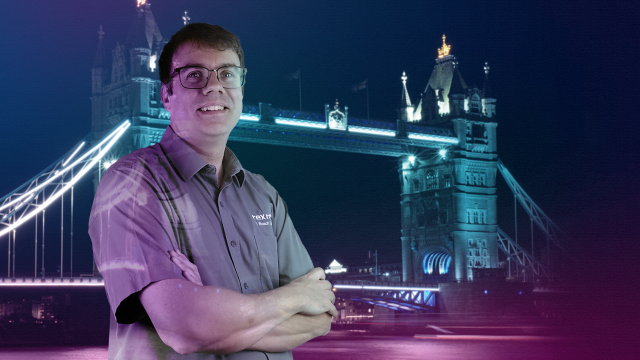Jason Capper - Engineering Manager
What is your name and job role? Describe your typical day to day activities (what do you typically do in a day?) How long have you been in the industry?
I’m Jason Capper and I’m the Engineering Manager for IPM (industiral power units and manifolds) systems in the UK. My day-to-day role is all about considering the direction of the engineering department, reviewing and approving technical requirements and quotations as well as looking at processes and procedures with a view to making them more effective for our daily activities. I’ve been with Bosch Rexroth for 19 years.
What is a project you are most proud of having worked on recently?
I’d say my proudest accomplishment is the heavy involvement I’ve had with the City of London’s Tower Bridge refurbishment and upgrade. We did a full power unit replacement in all four engine rooms amongst various other upgrades. Whilst there have been lots of large projects that I’ve been proud of, Tower Bridge is definitely the most prestigious one.
What were some key challenges you faced and how did you overcome them?
As with any project, there are sometimes customers who don’t know exactly what they’ve got or what they want, they simply want their machinery to work as it did before. This is a common challenge we face, but the big drawback on this particular project was that the components were originally installed in the 1970’s, so there was very little knowledge of what was still there. Because of this, I spent a lot of time in the archive rooms at Tower Bridge and in our office in St. Neots, looking over drawings from the 1970’s. It was vital for us to understand what was there and how it worked before we could make any changes, to make sure it didn’t have a knock on effect on anything else.
What do you think could have been done better and what were some lessons that you learned?
I think we could have improved our communication internally, particularly with the manufacturing plants in Lohr. Since then, we’ve made enormous progress in this area and are in regular contact with the plants which helps with current projects. Additionally, we have a better relationship with key contractors who we work with on a regular basis. We don’t do a huge amount of installation projects, so we don’t necessarily have those key contacts, but we’ve certainly developed some key relationships recently; so just trying to build on those will help us in the long run.
What were some of your personal highlights of this project?
I’d say, well, it’s Tower Bridge – there’s not a lot more else you can say on top of that! Jokes aside, being an engineer and being able to get into the workings of a world-renowned, historic landmark was a tremendous experience and I’m responsible for its continued operation, which in turn keeps London moving and the bridge moving. It’s one of my biggest achievements I would say.
What are you most excited about in terms of Rexroth systems and applications?
.I’d say the sheer quantity of products available gives us so many ways to do things to suit customer requirements. We provide a wide range of equipment from standard power units, through to factory installations and bespoke systems with controls for a large number of applications, be it the seabed or in a potentially explosive atmosphere, for example.
How has hydraulics changed or evolved over the years, and how has Rexroth contributed to this?
I’d say the basis of hydraulics hasn’t really changed that much. A pump is a pump, a valve is a valve, but what has changed is some tremendous leaps in technical innovation on the electronics and controls side of things. This all gives us greater information and, with industry 4.0, we can put more into it and get more out of it. This allows us more accurate controllable repeatability and, more importantly, increased efficiency.
What sets Rexroth apart in the world of hydraulics?
We can put our hand to anything. There’s not a lot that we haven’t been involved in over the years and if my team doesn’t know the answer, we’ve got a huge wealth of experience within Rexroth in the UK to ask. On top of that, there’s a global team of engineers to call on who can support us on all these different projects. This gives us the edge with products and technology, as well as a broad range of high-quality products to rely on.
What advice would you give to young people interested in working in hydraulics today?
Don’t be shy and get stuck into it. The more you put into it and the more you push yourself, the more you’ll get out of it. You’ll cover different applications and have the chance to work with some amazing customers, on some amazing machinery. So, yeah, just get stuck in.
What would you say is Rexroth’s overall contribution to environmental sustainability?
We’re constantly striving towards efficient products and encouraging our customers to do the same. Hydraulics hasn’t changed that much, but what has changed is the technological advancements that a lot of people don’t fully understand. We are going a long way to educate them that it’s not something to fear, it’s actually something that can help them. It can give them a competitive advantage to pass on to their end users, especially as we’re seeing an increased demand for energy efficiency. But it’s also about cost saving, which is key driver with end users in particular.
Learn more about our hydraulic product range here
Got a question?
Reach out to us for more information.
